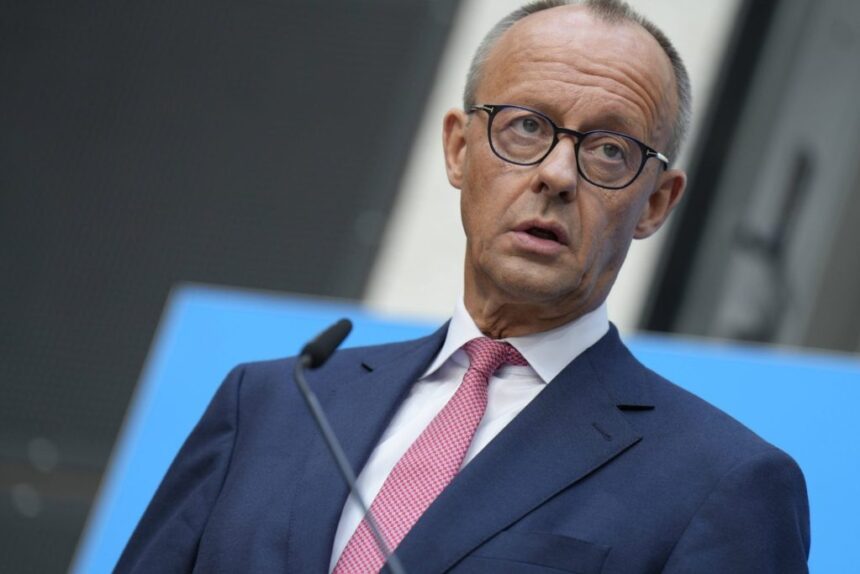In a significant policy reversal, German Chancellor Friedrich Merz has urged the European Union to use $160 billion of frozen Russian assets for Ukraine’s advantage, especially the ongoing provision of armaments.
Merz stated in a Financial Times opinion piece that the actions were required to give Ukraine “greater staying power” in the conflict and to pressure the Kremlin to engage in talks.
Berlin has previously expressed reluctance to use the cash, citing financial and legal problems. Merz took a more direct stance on Thursday. He urged the EU to think on “circumventing these problems,” saying, “This must not hold us back.”
“I am advocating the mobilization of financial resources on a scale that will secure Ukraine’s military resilience for several years.”
The Russian Central Bank currently has about $300 billion in frozen assets abroad, with a significant amount of those assets—roughly $229 billion—held in the European Union, primarily with Euroclear, a clearing house in Belgium.
Now, the chancellor of Germany wants to lend Kyiv $160 billion. It would be made available to Ukraine as a loan with no interest, to be “repaid once Russia has compensated Ukraine for the damage” caused by the war.
Long opposed to the possible confiscation of Russian assets, the Kremlin stated last week that such a move “will not go unanswered.” Ukraine could only use the money for weapon purchases under Merz’s idea; it could not be used for fiscal purposes.
The EU nations and Ukraine would then decide “which material is procured” once the payments to Kyiv were made in installments.
Merz went on to say he thought this system would also aid in “strengthening and expanding” Europe’s defense sector.
On the list of countries that have given Ukraine the most financial and military support since the start of the conflict, Germany comes in second only to the United States.
German Chancellor Friedrich Merz is pressing the EU to release $160 billion in frozen Russian assets to fund Ukraine’s military, reversing Berlin’s earlier hesitation.
Merz, elected in February, has made Ukraine a top priority and maintains strong ties with U.S. President Donald Trump. Writing in the Financial Times, he argued the funds would secure Kyiv’s resilience for years.
He plans to push the proposal at an informal EU meeting in Copenhagen next week ahead of a broader summit in October.
In the event that the idea is not “adopted by a large majority,” he added, he hopes it will be “unanimously” approved. Prime Minister Viktor Orban of Hungary and Robert Fico of Slovakia, both EU members with close links to Russian President Vladimir Putin, are probably the intended recipients of such remarks.
Source: CNN






